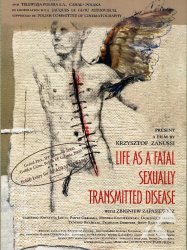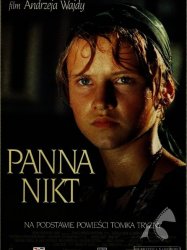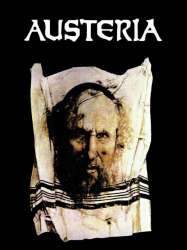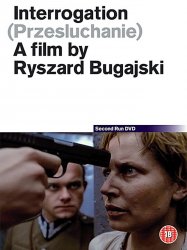Films from the country "pologne", sorted by revenue
 , 1h36
, 1h36Directed by Krzysztof Zanussi
Origin Pologne
Genres Drama
Actors Zbigniew Zapasiewicz, Krystyna Janda, Jerzy Radziwiłowicz, Anna Mucha, Szymon Bobrowski, Redbad Klijnstra-Komarnicki
Tomasz apprend qu'il a une maladie mortelle. Il demande son ex-femme Anna de financer son opération à Paris. Mais il est déjà trop tard pour guérir. Il n'est lui reste qu'attendre la mort et trouver quelqu'un qui aiderait de comprendre et accepter l'évanescence.

Szamanka (1996)
, 1h50Directed by Andrzej Żuławski
Origin Pologne
Genres Drama, Thriller, Horror
Themes Films about sexuality, Erotic films
Actors Bogusław Linda, Paweł Deląg, Paweł Burczyk, Agnieszka Wagner
In Warsaw, a student only known as the "Italian" (Polish: Włoszka, played by Iwona Petry) is on the search for an apartment. The Italian, who is beautiful and a free spirit, is originally from the countryside. During her search she meets anthropology professor Michał (Bogusław Linda), who is renting her an apartment that was occupied by his brother. The business is concluded by a violent sex scene between the two in the empty apartment.

Miss Nobody (1996)
, 1h38Directed by Andrzej Wajda
Origin Pologne
Genres Drama
Actors Anna Mucha, Stanisława Celińska, Leszek Teleszyński, Małgorzata Pieczyńska, Anna Romantowska

Holy Week (1995)
, 1h37Directed by Andrzej Wajda
Origin Pologne
Genres Drama, War
Actors Bożena Dykiel, Cezary Pazura, Wojciech Pszoniak, Artur Barciś, Maria Seweryn

Nastazja (1994)
, 1h40Directed by Andrzej Wajda
Origin Pologne
Genres Drama
Actors Bandō Tamasaburō V, Toshiyuki Nagashima
 , 1h32
, 1h32Directed by Wojciech Marczewski
Origin Pologne
Genres Drama, Fantastic, Fantasy
Actors Michał Bajor, Artur Barciś, Zbigniew Zamachowski, Jerzy Bińczycki, Henryk Bista, Jeff Daniels
Dans la Pologne proche de la sortie du communisme, des responsables de la censure et du Parti entrent en dialogue avec les personnages présents sur l’écran du cinéma Liberté, notamment dans des scènes de La Rose pourpre du Caire de Woody Allen, où un personnage quitte l'écran pour aller dans la salle. On est dans une construction à multiples degrés de films dans le film... et de rapports entre spectateurs (simples ou ayant un rôle de censure) avec une œuvre cinématographique.

300 Miles to Heaven (1989)
, 1h30Directed by Maciej Dejczer
Origin Pologne
Genres Drama
Themes Films about children, Politique, L'enfance marginalisée, Political films
Actors Wojciech Klata, Peter Steen, Jadwiga Jankowska-Cieslak
Au cours de la période la plus sombre du régime communiste en Pologne, deux frères de 11 et 14 ans, Jedrek et Grzes, vivent au quotidien les difficultés de leurs parents, miséreux et tourmentés par les autorités polonaises. Un jour, accompagné d'une camarade de classe, ils décident de se cacher sous un camion afin d’émigrer clandestinement à l'Ouest. Après maintes péripéties sur le trajet, ils échappent à la police et atteignent le Danemark. Ils sont accueillis par des autorités danoises rigides, qui les mettent dans un camp de réfugiés et attendent s'ils décident de les déporter.

A Short Film About Love (1988)
, 1h26Directed by Krzysztof Kieślowski
Origin Pologne
Genres Drama, Romance
Themes Films about suicide
Actors Grażyna Szapołowska, Olaf Lubaszenko, Artur Barciś, Stanisław Gawlik
Nineteen-year-old Tomek (Olaf Lubaszenko) is living in an apartment complex in Warsaw with his godmother—staying in her son's room while he's away. Raised in an orphanage, the shy Tomek has few friends and works as a postal clerk. Tomek has been spying on a beautiful older woman, Magda (Grazyna Szapolowska), who lives in an adjacent apartment complex. Using a telescope, he watches her every night performing mundane tasks, working on her artwork, and entertaining men. To get closer to her, he slips fake postal notices in her mailbox for a nonexistent money order at his post office. He also calls her anonymously to hear her voice. Tomek's obsession is focused more on her everyday activities rather than her sex life; when he sees her becoming sexual with men, he trains the telescope away and does not watch.

A Short Film About Killing (1988)
, 1h24Directed by Krzysztof Kieślowski
Origin Pologne
Genres Drama, Crime
Themes Prison films, Films about capital punishment
Actors Mirosław Baka, Krystyna Janda, Krzysztof Globisz, Maciej Maciejewski, Olgierd Łukaszewicz, Artur Barciś
Waldemar Rekowski (Jan Tesarz) is a middle-aged taxicab driver in Warsaw who enjoys his profession and the freedom it affords. His concern for turning a profit leads him to ignore some potential fares in favor of others. An overweight and crude man, Waldemar also enjoys staring at young women.

On the Silver Globe (1989)
, 2h46Directed by Andrzej Żuławski
Origin Pologne
Genres Drama, Science fiction, Fantasy, Adventure
Themes Films about magic and magicians, Films based on science fiction novels
Actors Andrzej Seweryn, Jerzy Trela, Krystyna Janda, Jan Frycz, Henryk Bista, Andrzej Żuławski
A group of astronauts leaves Earth to find freedom, and their spaceship crashes on an unnamed Earth-like planet. The astronauts, equipped with video-recorders, reach a seashore, where they build a village. After many years, only one member of the crew, Jerzy, is still alive, watching the growth of a new society, whose religion is based on mythical tales of an expedition from the Earth. The first off-Earth generation calls him the Old Man, treating him as a demi-God. The Old Man leaves them and before his death sends his video diary back to Earth in a rocket. A space researcher named Marek (Andrzej Seweryn) receives the video diary and travels to the planet. When he arrives, he is welcomed by the cast of priests as the Messiah, who can release them from the captivity of the Szerns, indigenous occupants of the planet. Shortly afterwards, Marek organizes an army and enters the city of the Szerns. Meanwhile, the priests start to believe that Marek was an outcast from the Earth, rather than a messiah who came to fulfill the religious prophecy.

No End (1985)
, 1h49Directed by Krzysztof Kieślowski
Origin Pologne
Genres Drama, Science fiction, Documentary, Fantasy
Actors Grażyna Szapołowska, Aleksander Bardini, Jerzy Radziwiłowicz, Artur Barciś, Danny Webb, Marek Kondrat
A Polish translator, Ulla (Grażyna Szapołowska), grieves for her recently deceased lawyer husband. As she copes with her loss, the family of her husband's last client, Darek Stach, contacts her in need of legal documents and advice. Ulla struggles with caring for her son, and alternately trying to remember and to forget her husband, while Darek struggles to come to terms with his imprisonment for political dissidence. Ulla's husband's ghost observes these events, occasionally becoming visible to Ulla and Darek.

A Year of the Quiet Sun (1984)
, 1h50Directed by Krzysztof Zanussi
Origin Pologne
Genres Drama, War, Romance
Themes Political films
Actors Maja Komorowska, Scott Wilson, Vadim Glowna, Ewa Dałkowska, Danny Webb, Zbigniew Zapasiewicz
Ouest de la Pologne, 1946. Emilia et sa mère invalide tentent de survivre dans une terre dévastée, autrefois allemande avant d'être intégrée à la Pologne. Emilia rencontre Norman, soldat américain, venu là pour enquêter sur des crimes de guerre. C'est bientôt l'amour, mais le temps est compté et Norman est rappelé à Berlin. Pour permettre à sa fille de suivre son amant, la vieille femme décide de se laisser mourir.

Austeria (1983)
, 1h42Directed by Jerzy Kawalerowicz
Origin Pologne
Genres Drama, War
Themes Films about religion, Political films, Films about Jews and Judaism
Actors Franciszek Pieczka, Wojciech Pszoniak, Liliana Komorowska, Szymon Szurmiej, Gołda Tencer, Ernestyna Winnicka
Premier jour de la Première Guerre mondiale. Des hassidim, venant en charrettes d’une petite ville de Galicie sont accueillis par le vieux Tag, esprit frondeur, et sa famille dans son auberge (austeria signifie auberge). En carrosse, arrive une Juive fréquentant les milieux aisés de Vienne. Elle fuit et essaie de persuader l’aubergiste de venir avec elle. Il refuse et reste avec sa belle-fille et sa petite-fille qui craignent un pogrom. La servante ukrainienne Jewdocha informe que les Cosaques approchent (nous sommes à proximité de la frontière russe). Une bataille se déroule non loin de l'auberge. D'autres fuyards qui étaient passés auparavant reviennent finalement s'abriter à l'auberge le soir. Parmi eux, le jeune Bum qui porte dans ses bras le corps de sa bien-aimée Asia. Les parents d'Asia et de Bum sont là aussi. Un tzadik (« juste » en hébreu) de Zydaczewo s'arrête lui aussi à l'auberge. Les hassidim se mettent à danser.

Interrogation (1989)
, 1h58Directed by Ryszard Bugajski
Origin Pologne
Genres Drama, Thriller, Horror
Themes Politique, Prison films, Films about sexuality, Erotic films, Sexploitation films, Political films, Women in prison films
Actors Krystyna Janda, Adam Ferency, Janusz Gajos, Agnieszka Holland, Anna Romantowska, Bożena Dykiel
Tonia (Krystyna Janda) is a cabaret singer in post-World War II Poland towards the end of the life of Soviet leader Joseph Stalin. After she performs for soldiers, she is arrested without being told why, and placed in a political military prison to be interrogated. Over a course of some years, she is humiliated and tortured by prison officials into confessing to crimes she did not commit. After failing to sign a document detailing a false confession, she is taken to the prison shower block and locked into a small cage between the floors. The water is turned on and the room is slowly flooded. She is released at the last moment and told to sign the confession form again, which she continues to refuse to do. While in prison, she demands that she sees her husband. One day he visits the prison, but is told by the officials of her alleged infidelities prior to her arrest, and he tells her that he doesn't want to see her again. She unsuccessfully attempts suicide. She develops a romantic relationship with an officer, one of the interrogating prison officials, whom she tells of the absurdity of the system he believes in. She becomes pregnant by him and, like other female inmates, is forced to give up her child for adoption, before eventually being released and reunited with her child. The officer secures her release and her ability to reclaim their child and then commits suicide.

Wizja lokalna 1901 (1981)
, 1h26Directed by Filip Bajon
Origin Pologne
Genres Historical
Actors Jerzy Stuhr, Tadeusz Łomnicki, Daniel Olbrychski, Henryk Bista, Stanisław Michalski, Wirgiliusz Gryń
 Connection
Connection